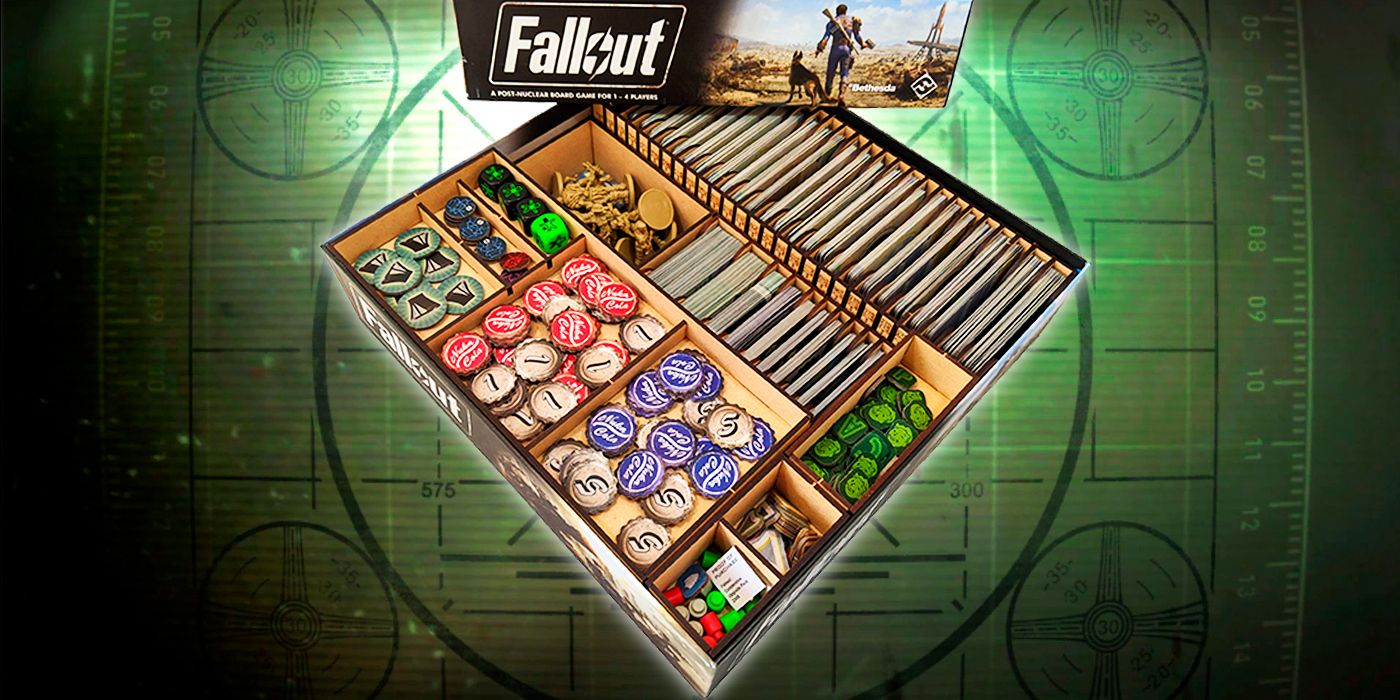
It might surprise fans to learn that the Fallout series doesn't just consist of video game titles but now has its very own tabletop RPG, Fallout: The Board Game. Developed by Modiphius Entertainment, who previously made another tabletop called Fallout: Wasteland Warfare, the new board game was released digitally earlier this year, with physical editions launching recently. Initial impressions have so far been positive, with the series' traditionally heavy RPG mechanics working surprisingly well with the board game adaption.
The game can support up to four players and can last between two to three hours per session. Like the video games, items can be collected that include bottle caps for currency, supplies, armor, weapons and even companions to help you on your adventure. With many callbacks that are faithful to the source material, newcomers and veteran fans alike will find everything that made them fall in love with the video games.
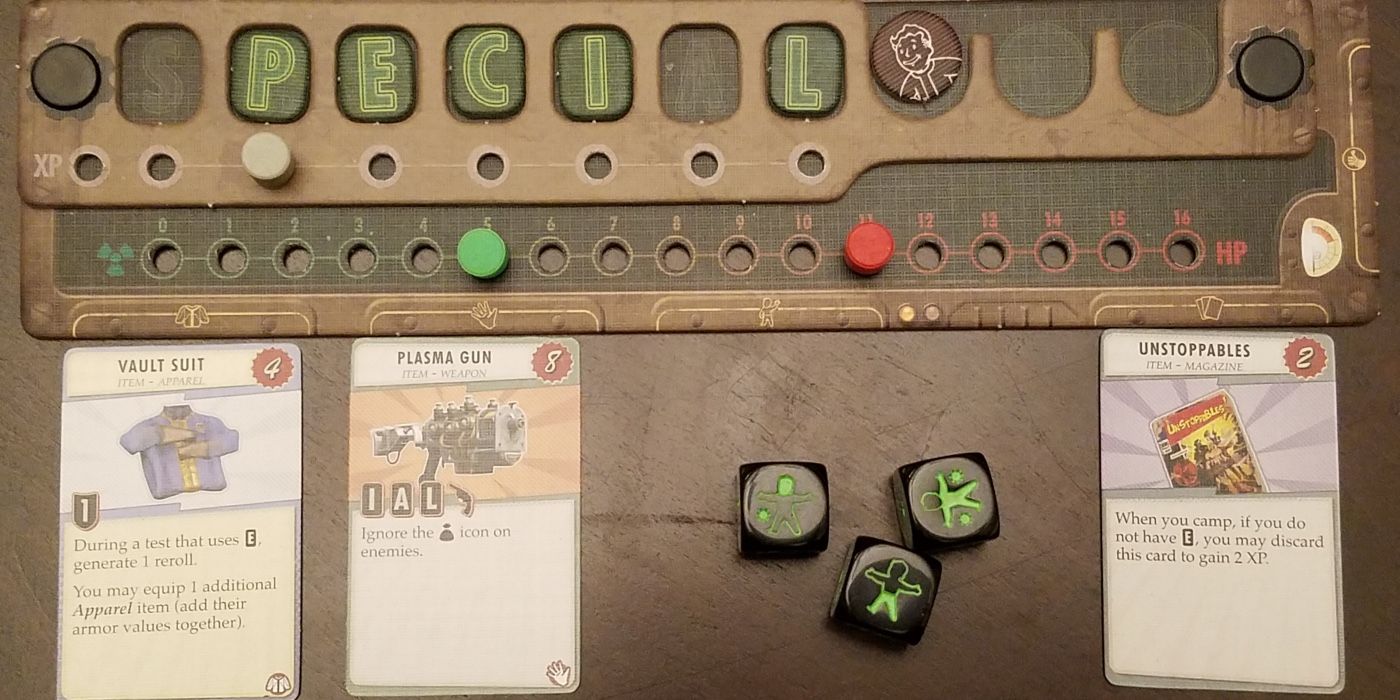
Before starting a new game, players will first need to create the character they want. At the core of the survivor board is the S.P.E.C.I.A.L. skill system, breaking up the survivors' abilities into seven main categories: Strength, Perception. Endurance, Charisma, Intelligence, Agility and Luck. To gain new skill tokens, players will need to level up, which is done by completing quests.
The number of skills a player has collected will determine how quickly they can level up again. Additionally, if leveling up results in a player drawing a skill they have already obtained, they have the opportunity to claim a perk in that area instead. Perks, in this case, are powerful abilities that can only be used once but can turn the tide of the game in the user's favor.
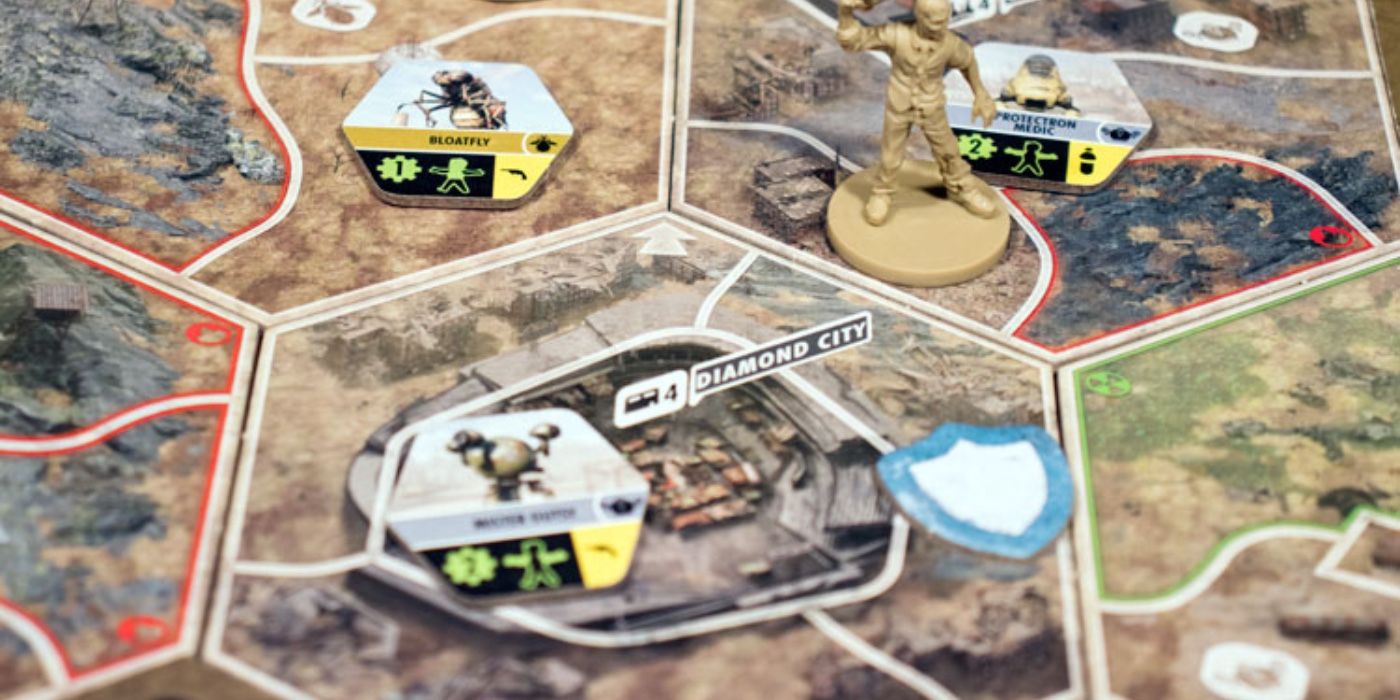
At the beginning of the game, the players will choose one scenario that determines the map layout, warring factions and major questline. In addition to the main quest, players will come across various side quests and encounters to enjoy. Many of the opportunities and choices presented in these cards allow for unique replayability.
The main quest in each scenario is driven by the conflict between two warring factions. Each new card that focuses on the main quest will bring opportunities for survivors to make tough decisions, both moral and mechanical. Some of these decisions allow for true role play as player aligned with good, bad or somewhere in between. They'll also give players opportunities to side with one or the other faction; however, the factions are a constant presence and threaten to outpace the group. If a single faction is pushed to power too quickly, the wasteland will be conquered, and the game might end without any players winning.
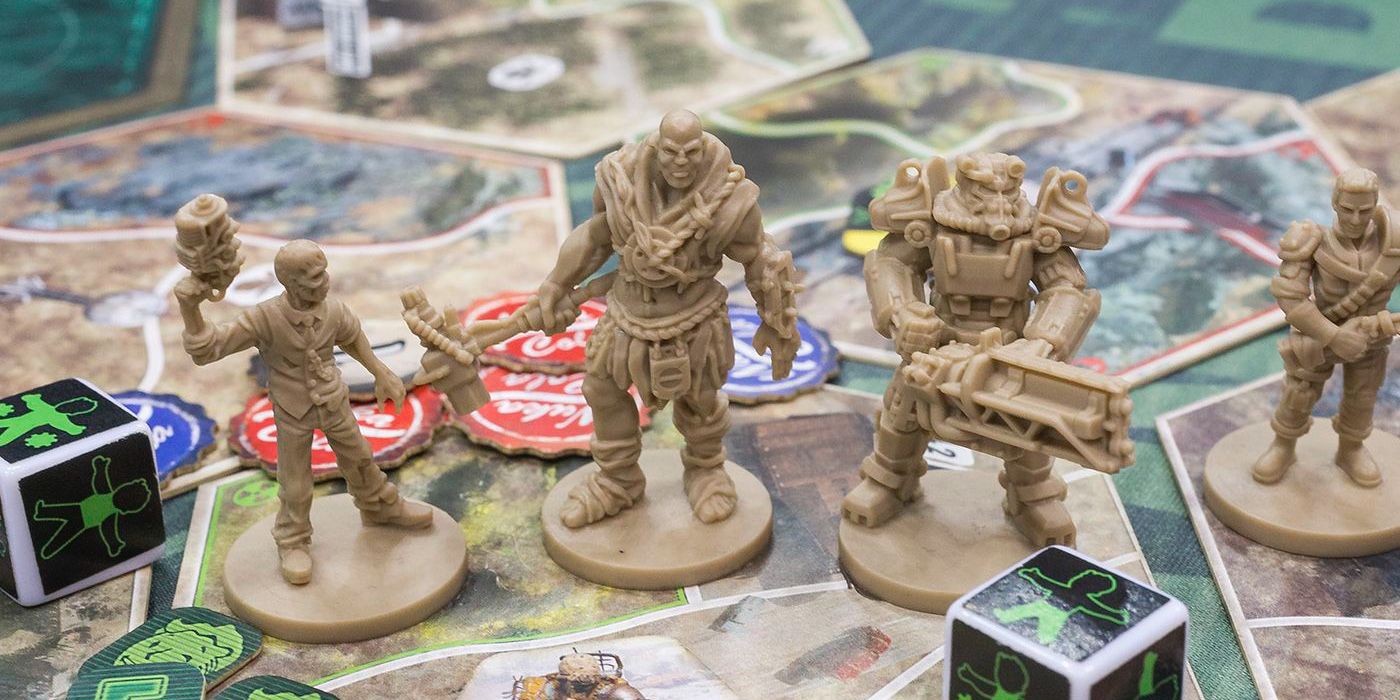
One element that's always been present in the series are the Vault-Tec Vaults, built both as safe havens from the apocalypse and for conducting experiments upon their populations. When a vault is first discovered, players will create a new encounter deck, allowing any survivor who comes in contact with the vault to interact with whatever lies behind the vault door. Similar to side quest cards, exploring the Vaults will let players become engaged in their twisted communities' stories, all while making decisions that can bring rewards and/or consequences.
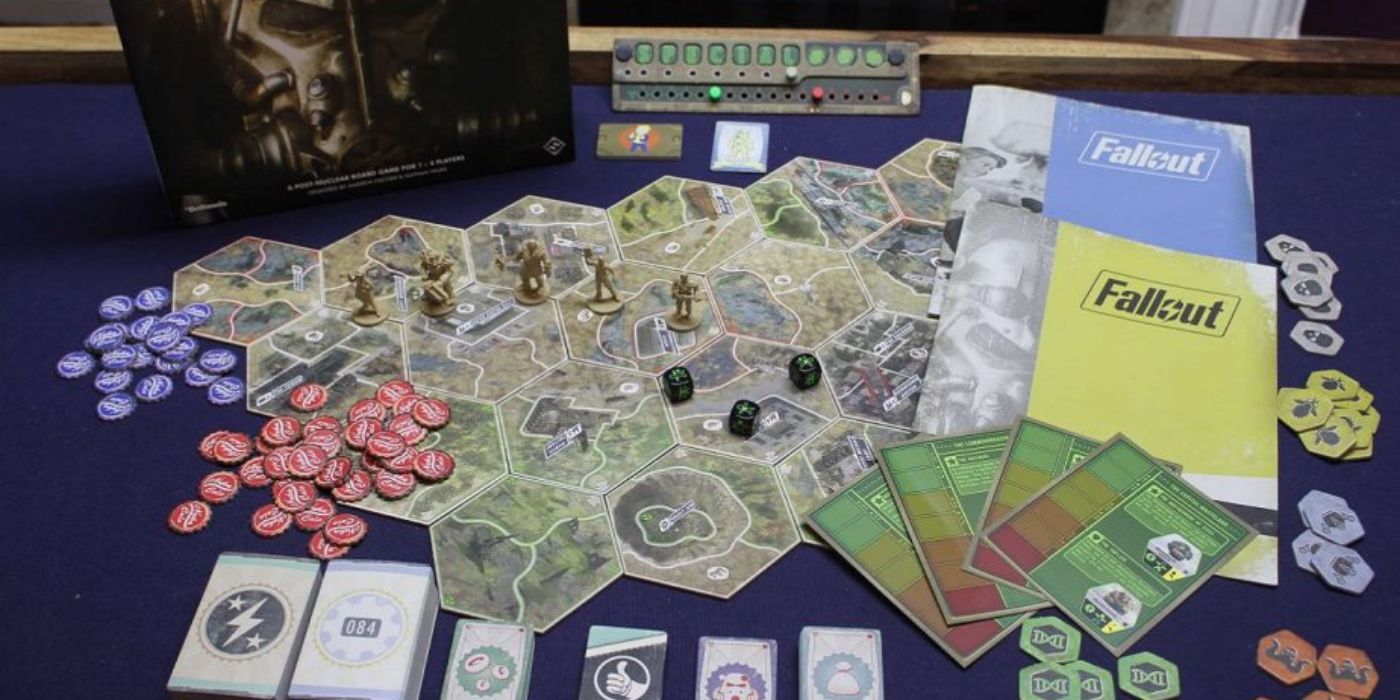
As the game progresses, players will advance both their own skills and the two faction objectives. However, the ultimate goal for all players is to collect a certain amount of influence. Each influence card grants one influence point inherently, but they also present specific conditions under which the player holding the card can gain even more points. These could include pledging loyalty to one of the two factions or reaching certain milestones. The number of influence points required to win the game also depends on how many players are participating.
Because of the possibility of one or the other faction ending the game without a winner, survivors might have to make alliances or rivalries between each other, all to try and win the game. Not every session will be the same, and your former enemy survivor from one session might become your greatest ally in another.
0 Comments